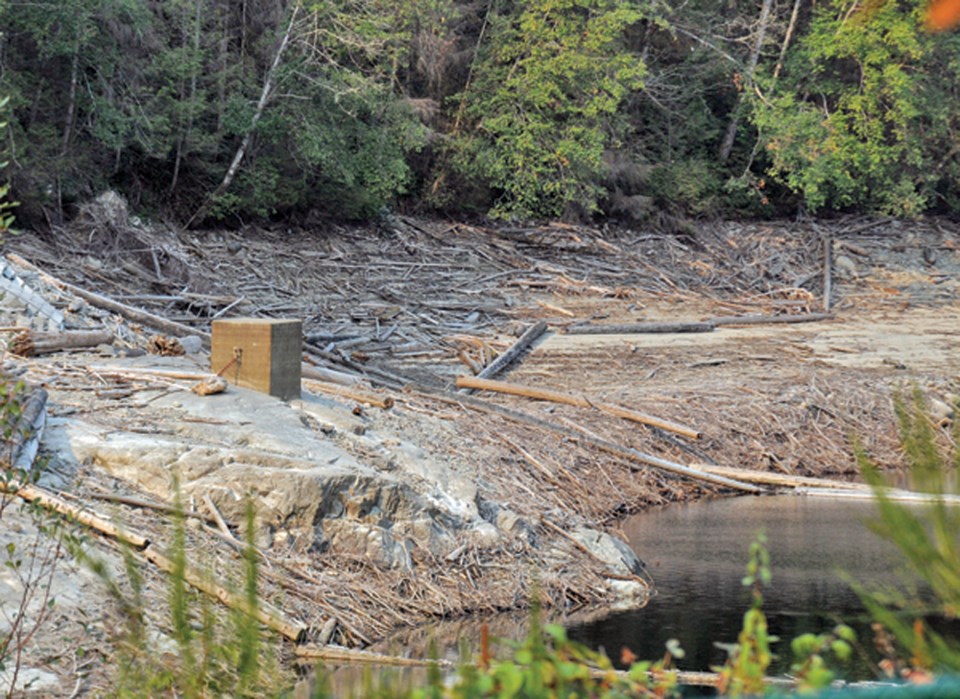Given the recurrent tragedies and the human and economic toll from forest fires in our dry summers, squawking about local life with a brown lawn is pretty petty.
So is the defiance by West Vancouver homeowners.
As is the sad reality that the district has to patrol and police it. Not a good look for the community.
I will admit that, after nearly two decades without a lawn to tend, I looked forward when I moved here to the appeal of a yard that I presumed came with living where, in winter and spring, it pours and pours and pours. Except, I’ve found that for the growing season, it doesn’t and doesn’t and doesn’t.
We went 102 consecutive days last year without rain. This summer hasn’t been much wetter.
My new mower has been amortized to $50 a cut. It takes a summer sabbatical. Planting grass seed after March provides the same optimism, and likely outcome, of lottery tickets.
I had to accept the verdict. So be it.
Yet when I drive around, I am struck by the sight of lush, verdant landscapes. Clearly other homeowners are doing something I’m not, and I suspect – no, I know – it has something to do with breaching the restrictions on water consumption.
When only hours away we can witness life-and-death weather episodes in which the presence of water means more than getting green grass, when communities are pulling together to save their homes and belongings and lives, our water greed and entitlement is embarrassing.
It is, of course, odd that in a province with about one-tenth of the country’s freshwater, with some of the world’s most desirable water, and on the North Shore with rainfall and the mountain melts, that we could be encountering what has become a chronic supply management challenge. Even stranger is how many people haven’t adapted to the years-long reality of weather events that have reshaped the characteristics of our seasons.
It is a sad state that the district had to write 956 addresses to chide them on their water consumption in July. The effect was a large-scale, caught-with-your-hand-in-the-cookie-jar moment. After all, you can’t really hide your feasting or claim some miraculous agricultural wonder of water-free greening. There are individual meters that tell all. Those meters let the district know that many properties quadrupled their water use once the temperature rose.
The meters also have a power of some exoneration. To wit: District spokesperson Carrie Gadsby jubilantly reports that 79 per cent of the early offenders decreased their consumption by a substantial amount within two weeks of the shame-mail. “This is good news!” she wrote.
It may also be that some of them went away on holidays and will be back soaking their yards in due course, but let’s score this one a win. Still, the game isn’t over.
Stage 2 of the restrictions are upon us, and they’re more stringent – and more likely to engender enforcement beyond the tsk-tsk letters. Indeed, it appears there are jobs this summer to root out the sprinkler set. Gadsby reported the other day that, so far, no fines have been issued.
You can expect a patrol through your neighbourhood by the Metro Vancouver Drinking Water Conservation Plan Summer Support Program staff, a long name even as an acronym, and some reports into the bylaw folks.
If you relish snitching on a neighbour, this is your chance. That $500 contravention of the bylaw is an awfully effective incentive to behave.
I’m not a big government-intervention guy on things like this, nor am I big on discrediting, but the education-first approach of the district is giving all of us far too much credit for being oblivious. We’re adults, we know inherently that it’s not classy to strain the supply beyond cooking, cleaning and drinking.
When that lawn is going brown – or golden, as the district euphemistically seems to prefer – we ought to just focus on getting up at 5 a.m. to tend the flowers, shrubs and trees and be done by 9.
The folks in the Okanagan, Shuswap and Yellowknife, if they can find a moment to breathe and reflect on our cat-and-mouse game to preserve the iconic lawn, must think we’re out of our skulls.
Kirk LaPointe is publisher and executive editor of Business in Vancouver as well as vice-president, editorial, Glacier Media Group, the North Shore News’ parent company. He is also a West Vancouverite.




